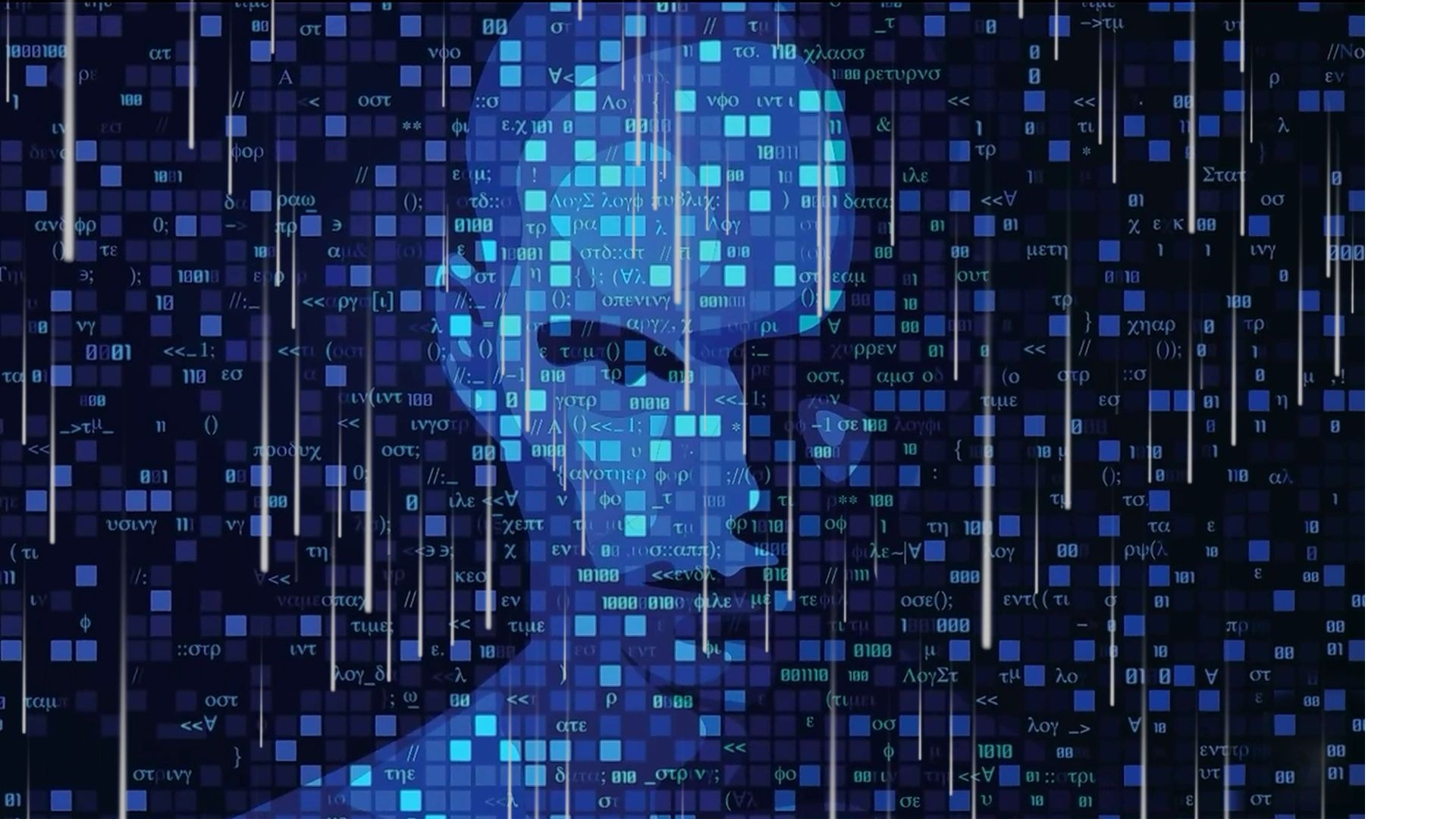Artificial intelligence has been moving fast. Maybe too fast.
In every corner of our world, it’s changing how people think, work, and yes—worship. What started as a clever tool for writing emails and summarizing articles is now knocking on the front doors of our churches.
Some pastors call it a blessing. Others call it a threat.
From sermon prep to worship music to Sunday school, AI is starting to touch every area of church life. And not everyone is thrilled about it.
The reality is, AI is already reshaping how churches connect, serve, and fulfill their mission. As this technology becomes more common, important questions arise: How do we ensure AI serves the true purpose of the church? Many churches are cautiously exploring AI, recognizing the need for careful and thoughtful implementation to avoid potential pitfalls.
Whether you’re excited, cautious, or just plain curious, it’s time to consider how artificial intelligence might shape the future of church life. From one perspective, this technology offers new opportunities, while from another, it raises significant concerns—reflecting the diverse viewpoints within the faith community.
So what exactly is going on? What are church leaders debating? And where should we draw the line?
Let’s break down the seven biggest controversies that are sending shockwaves through church communities online.
Estimated reading time: 10 minutes
Table of contents
- AI and the Church
- 1. Can AI Write a Sermon That Preaches?
- 2. Should We Let AI Design Our Church Graphics?
- 3. Can AI Be Trusted to Disciple New Believers?
- 4. Is AI-Composed Worship Still Worship?
- 5. Can AI Teach Kids About Jesus?
- 6. Should AI Answer Prayer Requests?
- 7. Is AI Warping Our Theology?
- What Church Leaders Need to Know
- The Future of Church Services
- More Resources on AI in the Church
AI and the Church
Artificial intelligence is no longer just a buzzword in the tech world—it’s stepping right into the heart of church life. As AI tools become more accessible, church leaders and members are finding themselves at a crossroads, filled with mixed feelings about what this technology means for their faith community.
Some see AI as a powerful ally, helping with everything from sermon prep to creating engaging video clips that bring scripture to life. Others worry about what might be lost when technology takes on roles once reserved for people.
The reality is, AI is already reshaping how churches connect, serve, and fulfill their mission. Volunteers and staff are discovering new tools that can streamline ministry tasks, freeing up time for deeper relationships and creative outreach.
But as churches experiment with these innovations, important questions arise: How do we ensure AI serves the true purpose of the church? How do we keep the heart of ministry at the center, even as we embrace new technology?
1. Can AI Write a Sermon That Preaches?

This might be the biggest question of all: Can a computer write a message that changes lives?
AI tools like ChatGPT can analyze scripture, pull theological references, and generate full sermon drafts in seconds. That’s not science fiction—it’s happening now. AI can also provide sermon summaries, offering both short and long overviews to help church members quickly grasp the main message and key points.
Some pastors see it as a time-saving assistant. Others see it as spiritual plagiarism. After all, sermon prep has traditionally been rooted in prayer, study, and deep reflection. Now, AI can be used to review key points, scripture references, and quotes for accuracy and depth. It can also assist in selecting and refining meaningful quotes to support the sermon material. AI may deliver clean outlines and catchy points, but does it come from the heart? AI-generated sermons can be delivered efficiently, but the question remains about their authenticity.
Many church members have mixed feelings. If the pastor didn’t personally wrestle with the text, does the message carry the same weight?
The concern isn’t just about laziness—it’s about authenticity. Sermons are more than words. They’re a reflection of a pastor’s faith, walk with God, and calling to serve the community. When AI does the heavy lifting, does the pastor still own the message?
2. Should We Let AI Design Our Church Graphics?
Creating graphics for sermon series, events, and social media is a huge part of modern church life. AI image generators like DALL·E or Midjourney can create stunning designs in seconds. Custom graphics can be easily created with these tools, allowing churches to quickly produce shareable media for their needs.
But the controversy lies in two places:
First: Does relying on AI reduce human creativity in the church?
Second: Where is the art coming from? Many AI image models are trained on copyrighted work—without permission. Are we using stolen art to serve the church?
There’s also the matter of tone. AI designs can look impressive, but do they reflect the values, culture, and heart of your church? Or do they just look cool?
For some, it’s just a tool. For others, it’s a compromise.
Churches can also upload AI-created graphics to their websites or social media platforms, making it easy to share new content with their community.
The Role of Video Clips: AI’s New Pulpit
The future of AI videos in ministry is bright—and a little wild. With just a few prompts, church leaders can now generate sermon clips, Bible story animations, or personalized devotionals in minutes. AI makes it easier than ever to share the message of Jesus across platforms, languages, and generations.
But with great power comes great responsibility. As this technology evolves, churches must stay rooted in scripture, prioritize authenticity, and use these tools to enhance—not replace—human connection. AI video is not the future of ministry alone, but when used wisely, it can be a powerful partner in spreading God’s truth.
Beyond sermons, AI can help churches create devotionals, testimonials, and educational resources tailored to their community’s needs. By making it simple to create and share meaningful content, AI is helping churches strengthen their connection with members and reach new audiences with the message of faith. As technology continues to evolve, video clips may well become one of the most effective tools in the modern church’s ministry toolkit.
3. Can AI Be Trusted to Disciple New Believers?
Some churches are experimenting with AI-generated devotionals, spiritual prompts, and chatbots that answer basic questions about faith. It’s efficient. It scales. It never sleeps.
But is that real discipleship?
True discipleship is rooted in relationships—the messy, beautiful, Spirit-led work of walking with people. AI might be used as a first step in guiding new believers, but it should never replace personal mentorship. AI can provide quick answers and scripture references, but it can’t listen deeply, pray earnestly, or challenge someone in love.
If church leaders begin outsourcing discipleship to AI, what message does that send about the value of human mentorship and spiritual formation?
Helpful? Sure. A replacement? Never.
There is an opportunity for churches to use AI as a tool to support discipleship, but it must always be balanced with genuine human connection.
4. Is AI-Composed Worship Still Worship?

Here’s a hot-button topic: AI-generated worship music.
Yes, it’s possible. There are tools that can compose original melodies and lyrics based on scripture and style. Churches can generate brand-new worship songs with just a few prompts. These AI-generated songs can be incorporated directly into the church service, providing new music for congregational worship. In fact, there have been church services that included AI-generated music as part of the overall service, demonstrating how technology can shape modern worship experiences.
But is it inspired?
Worship isn’t just about sound. It’s about spirit. Many church members believe that worship songs should flow from personal encounters with God—not algorithms.
Using AI in worship might help with brainstorming or arranging music, but if the heart isn’t there, can it still lead people into God’s presence?
This debate raises deep questions about creativity, anointing, and what it really means to sing to the Lord a “new song.”
5. Can AI Teach Kids About Jesus?
Another flashpoint is Vacation Bible School and Sunday school.
Some leaders have started using AI tools to create lesson plans, skits, and crafts. AI is also being used in various ministries to streamline planning and content creation, making it easier to coordinate activities across different church programs. Additionally, AI can assist with research for developing educational materials and activities, helping leaders gather information and resources more efficiently. The result? Faster planning and more polished materials.
But critics are worried.
Teaching children about God is one of the most important parts of ministry. Can AI understand what kids need to hear, feel, and experience? Can it account for real classroom dynamics or respond to a child’s tough questions about life and faith?
Parents want to know: Who’s helping my kid learn—a caring adult, or a faceless algorithm?
6. Should AI Answer Prayer Requests?
Yes, this is happening.
Some church websites now use AI to automatically respond to prayer requests with personalized messages. It might sound helpful, but for many, it crosses a serious line. Trust in the technology and systems handling these sensitive requests is crucial, as churches need to be confident that AI will be safe, responsible, and reliable. Many churches use different systems to collect and manage prayer requests, but integrating AI into these systems can create challenges, especially when these systems do not communicate well with each other.
Prayer is intimate. Holy. Personal. Can a machine offer comfort the way a pastor or prayer team can?
While AI might provide initial responses or follow-ups, it should never replace real human connection in moments of spiritual need. There’s a risk of cheapening something sacred.
If someone pours their heart out to the church, they deserve more than an auto-reply.
7. Is AI Warping Our Theology?
Here’s a deeper concern: Many AI tools are trained on massive datasets that include sermons, devotionals, and theological content—often without permission.
This raises two problems: As mentioned earlier, issues like doctrinal bias and content ownership are central to the discussion.
First: Who controls the theology? If AI was trained on one stream of doctrine, it might start presenting biased views as universal truth. One important point is that this could lead to the widespread adoption of a single perspective, overshadowing the diversity within Christian thought.
Second: What about ownership? If a church’s sermons were used to train AI, and now that AI is being used by other churches, what does that mean for copyright, credit, and compensation?
Theological AI is only as good as the data it was trained on. Without oversight, churches might unknowingly promote distorted views of scripture.
Church leaders need to stay alert and grounded in the Word.
What Church Leaders Need to Know

We’re not here to fear AI. Technology isn’t evil. But it does require discernment.
Every tool comes with a tradeoff. And when it comes to ministry, those tradeoffs have eternal weight. At the same time, AI can save church leaders hours of work on administrative and communication tasks, freeing up more time for direct ministry.
Church leaders must ask:
- Are we using AI to enhance human ministry—or replace it?
- Does this tool serve our message—or shape it?
- Is our tech helping us love people better—or making us more distant?
There are no one-size-fits-all answers. Every church must wrestle with these questions in community, in prayer, and in light of scripture. Church leaders are encouraged to join conversations and communities focused on the responsible use of AI in ministry. Check out other opinions on this topic as well.
The Future of Church Services

The church has always wrestled with new tools. The printing press. The radio. The internet.
Artificial intelligence is just the latest frontier.
It can help us serve, reach, and connect in powerful ways. Meaningful interactions and faith progression extend beyond Sundays, reminding us that technology should enhance—not replace—our ongoing relationships. Last July, a church service written entirely by AI was conducted, highlighting a recent and significant example of how churches are exploring innovative uses of AI in ministry.
It can also tempt us to shortcut the very things that make ministry sacred: prayer, study, presence, community.
In the end, no tool—no matter how advanced—can replace the Spirit of God working through human lives. The church must stay grounded in faith, led by scripture, and committed to the deep work of shepherding people.
Let AI be a tool. But let the heart of the church stay human.
More Resources on AI in the Church





